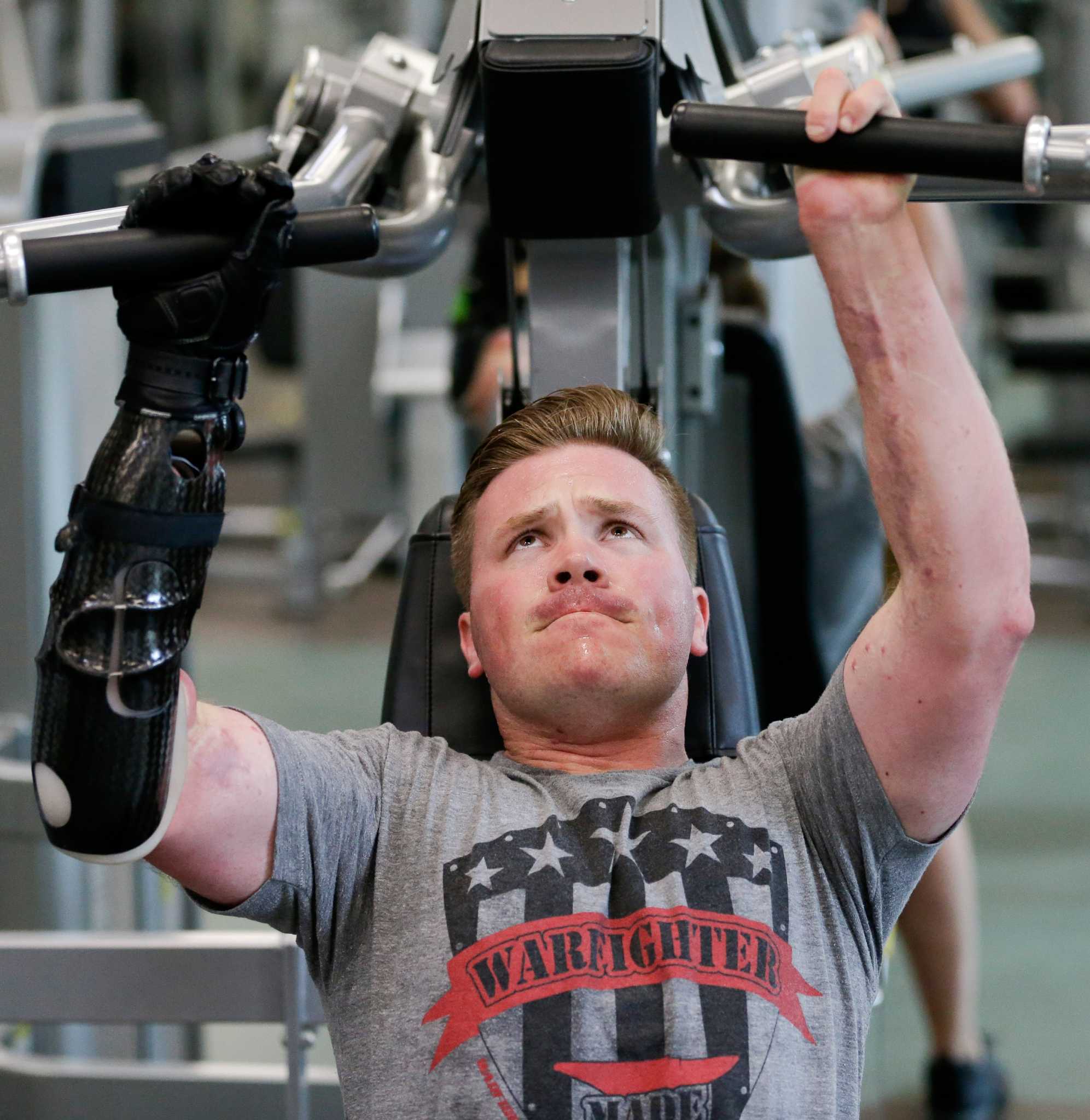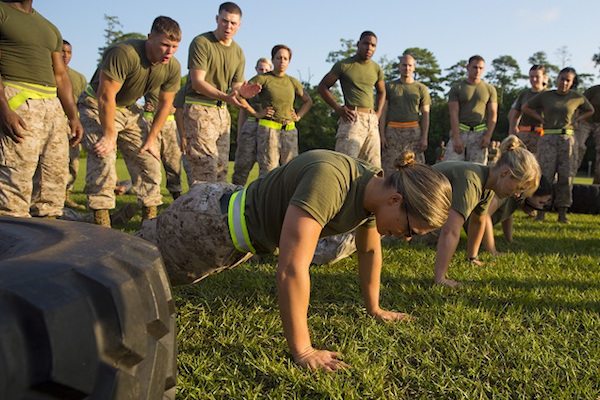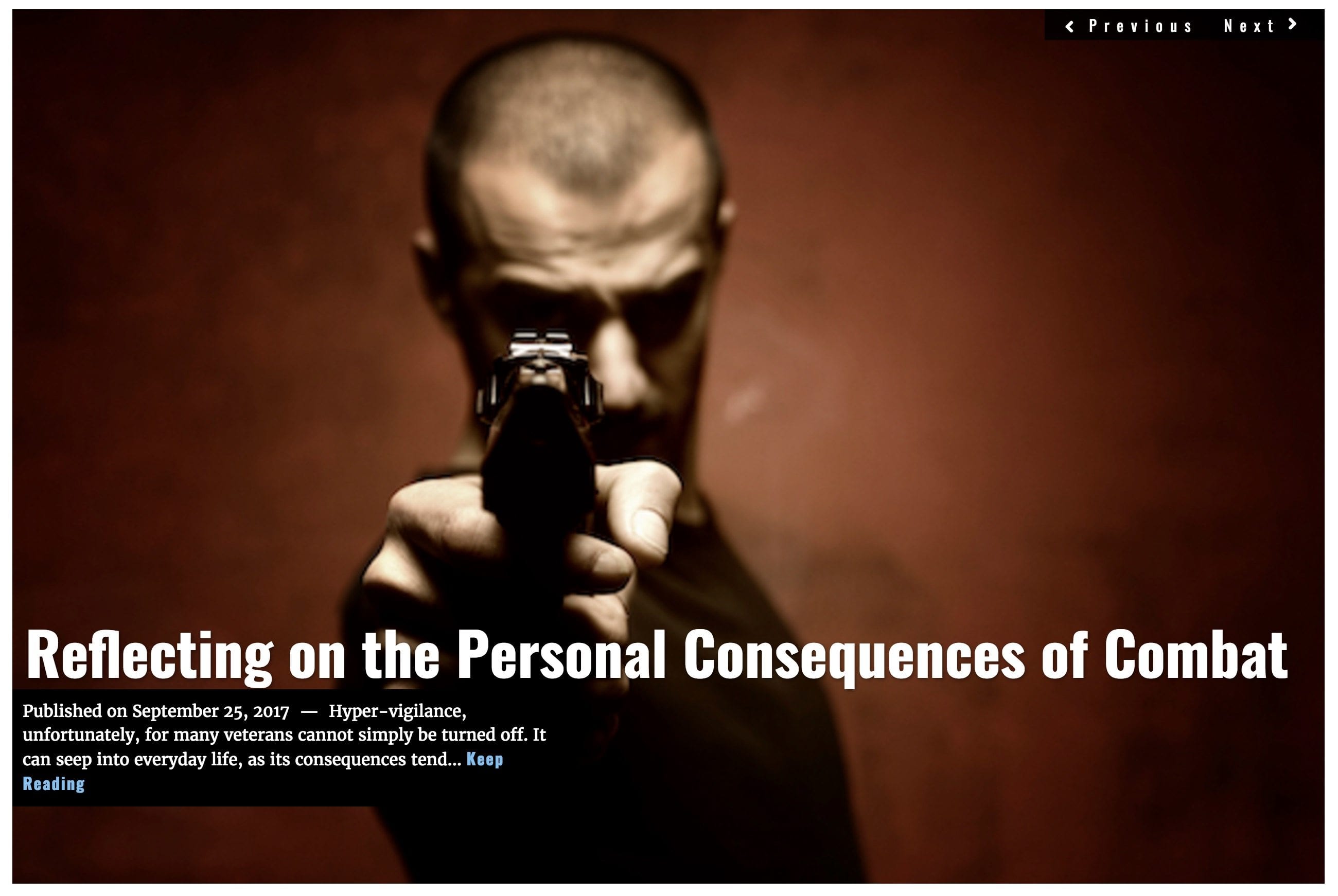Did you get your sleep last night? What kind of food do you eat? How often do you work out? I am not a doctor, but I do know all humans need these three basic things to be productive. So, the question is this: are you following The Performance Triad?

As a number of experts assembled last month at the University of Southern California’s (USC) Center for Innovation and Research on Veterans and Military Families (CIR) to discuss complex topics related to veterans’ issues, I feel that sharing my own experience might be useful for my fellow veterans to cope with what I term as “the residual effects of combat stress.”

About a year ago, while I was at Evans Army Community Hospital in Ft Carson, Colorado, I was heading to my car and a banner in the cafeteria titled “The Performance Triad” caught my eye. I stopped and reflected on it for a second when it hit me! The three things that I gave up when I retired from service were the three things that I needed for my recovery.

Sleep
As far as sleep is concerned, I get out of bed when I am ready. I do not have a clock in my room, nor do I sleep with my cell phone. If you are having trouble sleeping, try eliminating some of these disruptive devices from your environment as a means to improve your sleep hygiene. Although it may not work for everyone, I have found certain characteristics of my sleep environment to be necessary. For instance, I have painted my entire room a deep blue color, removed all pictures and art from the walls, and use black-out curtains. I keep my room at 67 degrees and I have an oil diffuser that makes relaxing sounds. I also have a medical grade air purifier to keep the air clean. When I go to bed, I lock down my house and remove all electronics and technology from my presence.
Sleep hygiene is critical to one’s success, as each of us must learn what works and what doesn’t. I have figured this out for my ownself, but the task must be individually tailored to meet each person’s unique needs. Stop for a second and think about how it is that you benefit from getting great night’s sleep?

Diet
I came back from Iraq with severe food allergies, so I am forced to eat a strict diet. (I personally blame the burn pits). Diet is critical! I’m not telling you to go vegan, but what I will recommend is to just start ADDING more leafy green vegetables to your diet. That’s it. Leafy greens add important nutrients to your body that will make you feel better and be healthier. Over time, your body will tell you what it wants, what it needs and what to walk away from.
I personally follow a Paleo Diet, but like I said, its due to a medical condition. I also recommend staying away from processed foods. I understand that healthy food is expensive and can be time consuming to prepare, but making small changes to your daily life today will pay dividends in the years to come. Also, stay away from the short-term body transformation diets. Be realistic with yourself and give it 6 months to a year to see results.

Exercise
This is the one I hate, but not because I hate working out, but because I NEED to work out. I never had a problem with my fitness. I maxed the Army Physical Fitness Test because I was bored. I am a retired marathon runner, who has been training for the past couple of years to be a Powerlifter. I have a high metabolism rate, combined with pure rage from combat, so the only thing that I have found to “burn the rage,” which I’ll return to in a moment, is Powerlifting.

To me, it seemed the VA was more interested in prescribing medications instead of providing a gym membership; a more cost-effective solution in my experience. After my third suicide attempt I walked away and have been pill free ever since. The VA wanted me to take pills. What I needed was to “burn the rage.”
“Burning my rage” may seem misleading, so let me explain. I have to work out in the morning after I get out of bed. Even though I use medical marijuana to help me sleep, I often wake up early in the morning, covered in sweat, recovering from bad thoughts and dreams. Physically, my body is reacting to what is going on in my mind, even though it is taking place at an unconscious level. When I wake up, I have to immediately exercise in order to burn out all the “bad blood,” so that I can start my day with “fresh new blood.” I rarely workout when I am mad, and I don’t get “angry” when I lift because I will hurt myself. Instead, I choose to mitigate these emotions before they grab hold. When I am angry, I opt for a 15-30 minute walk to clear my mind and get my heart pumping endorphins. My recommendation: you do what works for you, as long as you do something!
I consider the residual effects of combat stress to be a serious condition, which requires three things for recovery: sleep diet, and exercise. The U.S. Army has adopted this method and so have I. My life now revolves around The Performance Triad and my kids before I do anything else. This approach has provided balance in my life, so that I am better able to manage the Warrior, while doing something positive for myself, my family, and my community. As we look to this week’s CIR conference for some additional guidance on managing unique and complex veterans’ issues, I am hopeful that by detailing my own approach I was able to offer my fellow veterans a way forward.
[Main Image: U.S. Marine Corps photo by Sgt. Paul Peterson]
Donald E. Martinez, with David Firester, Lima Charlie News
Don Martinez is a retired Field Artillery officer living in Colorado Springs, CO. He is a veteran of Operation Iraqi Freedom with two combat deployments to Iraq where he earned his Combat Action Badge. Don reports on national security, public policy, political management, homeland security, and veterans issues.
Lima Charlie World provides global news, featuring insight & analysis by military veterans, intelligence professionals and foreign policy experts Worldwide.
For up-to-date news, please follow us on twitter at @LimaCharlieNews
In case you missed it:



![Image Podcast: Combating PTSD, depression, suicide - Yoga and Meditation - Ep.03 [Lima Charlie News]](https://limacharlienews.com/wp-content/uploads/2018/07/Podcast-Combating-PTSD-depression-suicide-Yoga-and-Meditation-Ep.03-480x384.jpg)
![Image Geronimo: A Service Dog's Tale [Lima Charlie News][Image: Don Martinez]](https://limacharlienews.com/wp-content/uploads/2018/05/Geronimo-A-Service-Dogs-Tale-Don-Martinez-480x384.png)




![Image Memorial Day may soon be a remembrance of democracy and those who had the courage to defend it [Lima Charlie News]](https://limacharlienews.com/wp-content/uploads/2018/05/Memorial-Day-may-soon-be-a-remembrance-of-democracy-and-those-who-had-the-courage-to-defend-it-Lima-Charlie-News-480x384.png)
![The Mind of Bolton - AUMF and the New Iran War [Lima Charlie News]](https://limacharlienews.com/wp-content/uploads/2019/05/Inside-the-mind-of-Bolton-Lima-Charlie-News-main-01-480x384.png)
![Image Podcast: Combating PTSD, depression, suicide - Yoga and Meditation - Ep.03 [Lima Charlie News]](https://limacharlienews.com/wp-content/uploads/2018/07/Podcast-Combating-PTSD-depression-suicide-Yoga-and-Meditation-Ep.03-150x100.jpg)
![Image Geronimo: A Service Dog's Tale [Lima Charlie News][Image: Don Martinez]](https://limacharlienews.com/wp-content/uploads/2018/05/Geronimo-A-Service-Dogs-Tale-Don-Martinez-150x100.png)